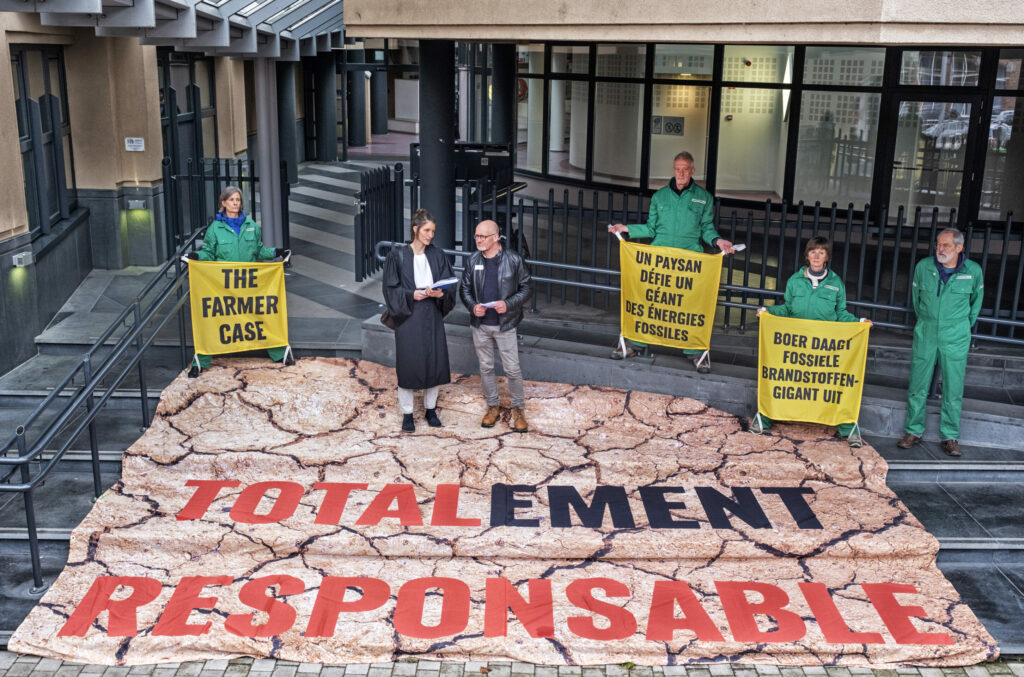Hugues Falys, a farmer from Lessines in Wallonia, will sue TotalEnergies for its role in climate change. The case marks Belgium's first climate action against a multinational.
"I am hugely impacted by the climate crisis, as is my farm," said Falys, who has been a farmer for 30 years. "Both drought and torrential rains have significantly decreased yields, created more work and stress due to uncertainty, not to mention disrupting the harvest calendar." He highlighted the uncertainty that farmers face, with their livelihoods intrinsically linked to the challenges of climate change.
TotalEnergies is the largest oil distributor in Belgium and the fifth most profitable in the world. Greenpeace has listed the French multinational as one of 21 fossil fuel corporations that collectively are responsible for over a third of the world's greenhouse gas emissions.
"'The Farmer case' hopes to make one of the largest fossil fuel multinationals face up to its responsibilities and force it to adopt a credible transition plan," stated FIAN – an organisation that campaigns for the right to adequate food and nutrition and which is supporting Falys alongside Greenpeace and the Human Rights League (LDH).
Profiting from climate scepticism
Falys and his supporters argue that TotalEnergies has been aware of its impact on the climate since the 1970s but has promoted climate scepticism for its own financial gain. This strategy intended to hold back policies that would impact its operations, NGOs say.
They denounce the disastrous consequences this has had for the climate, agriculture, food, and the environment and have issued a set of demands that would mitigate the repercussions. Falys, who is also spokesperson for the farming federation FUGEA, calls on TotalEnergies to adopt a credible transition plan which includes ending investment in fossil fuel projects, a 60% reduction in greenhouse gas emissions by 2030, and cutting and gas production by 75% by 2040.

Farmers' protest in Brussels, 1 February 2024. Credit: Orlando Whitehead
The fight against activities that lead to climate change is just another battle that the agriculture sector faces. This year has already been marked by farmers' protests, though these have been directed towards EU regulations that the industry says threaten their way of life.
Major protests across Europe – which saw over 1,000 tractors roll into Brussels at the start of February – made headlines as farmers expressed anger about an excessive administrative burden and competition from non-EU importers that drive down their profits.
The industry backlash, which has sparked ongoing actions in Belgium, has led national governments to relax regulations on farmers. At the EU level, environmental provisions were watered down for some farming practices – much to the dismay of climate scientists who denounce this as a retreat from the very policies that would sustain farming in the long term.
Data suggests that many Belgian farmers share Falys' environmental concerns. A CBS poll conducted in July 2023 showed that eight in ten farmers in Wallonia are already feeling the impact of climate change.

